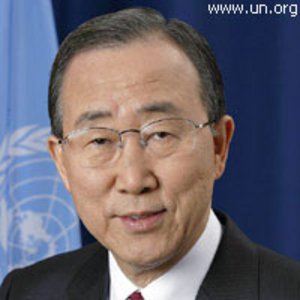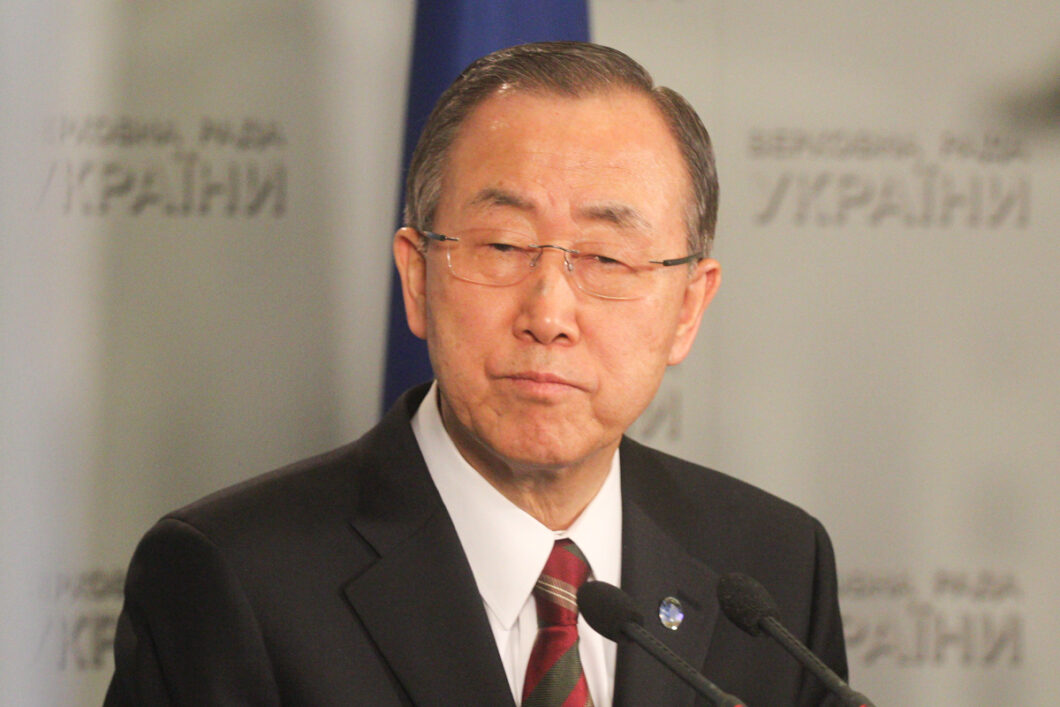
Place of Birth. Education. Ban Ki-moon is from the Republic of Korea. He became the eighth Secretary General of the United Nations at the end of 2006, succeeding Ghanaian Kofi Annan. At that time, he had 37 years of experience in the Korean government, as well as in the international arena. Before the vote, all five permanent members of the UN Security Council voted for Annan to be replaced by Ban Ki-moon.
He received a bachelor's degree in international relations from Seoul National University in 1970. In 1985, he received a Master of Public Administration from the Kennedy School of Government at Harvard University.
Career. At the time of his election as Secretary General of the United Nations, Ban Ki-moon was the Minister of Foreign Affairs and Foreign Trade of South Korea. During a number of years of work in the ministry, he was sent to Delhi, Washington, Vienna and was responsible for a number of areas. He has served as Foreign Policy Adviser to the President, Chief National Security Adviser to the President, Undersecretary for Policy Planning, and Director General of the American Division. His work was guided by the vision of a peaceful Korean peninsula playing an ever-increasing role in restoring peace and prosperity to the region and the world.
Ban Ki-moon has long-standing ties to the United Nations, dating back to 1975 when he worked in the UN department of the Foreign Office. Over the years, work in this area has expanded. He has served as First Secretary of the Permanent Mission of the Republic of Korea to the United Nations in New York, Director of the United Nations Division at the Ministry's Headquarters in Seoul, and Ambassador in Vienna. During this period, in 1999, he was also Chairman of the Preparatory Commission for the Comprehensive Nuclear-Test-Ban Treaty Organization.
In 2001-2002 in his capacity as Chief of Staff to the President of the General Assembly, who was the representative of the Republic of Korea, Ban Ki-moon facilitated the swift adoption of the first resolution of this session condemning the September 11 terrorist attacks. He came up with a number of initiatives aimed at strengthening the functioning of the Assembly. Largely thanks to Ban Ki-moon, the session, which began in an atmosphere of crisis and confusion, became very productive, and a number of important reforms were approved at it.
Actively participated in resolving issues related to relations between the two Koreas. In 1992, as Special Adviser to the Minister of Foreign Affairs, he was Vice Chairman of the Joint North-South Nuclear Control Commission following the joint declaration declaring the Korean Peninsula a nuclear-free zone. In September 2005, as Minister of Foreign Affairs, he took part in negotiations to bring peace and stability to the Korean Peninsula. At that time, at the six-party talks, a joint statement was adopted on the settlement of the nuclear problem related to North Korea.
On October 13, 2016, the UN General Assembly approved the former Prime Minister of Portugal, António Guterres, as Secretary General of the organization. Guterres succeeded Ban Ki-moon as UN Secretary General on January 1, 2017.
On September 14, 2017, at the 131st session of the IOC, he was elected Chairman of the Ethics Commission of the International Olympic Committee.
Views and assessments. Ban Ki-moon is no stranger to increased attention to his person. According to the BBC, he was at the center of events during the confrontation over North Korean nuclear weapons development, when six countries tried to persuade Pyongyang to abandon its nuclear plans. However, the negotiations failed, diplomacy did not bring results. This gave rise to doubts about Ban Ki-moon's leadership qualities and his readiness to resist the United States.
Speaking about his tasks as UN Secretary General, Ban Ki-moon noted that the organization "should promise less and deliver more." He set out to carry out an organizational reform of the UN, which would allow "to restore the confidence of the member countries."
A workaholic who did not allow himself a vacation for two years before being appointed to the post of UN Secretary General, Ban Ki-moon is the personification of a successful Korean official. He reached the top without making enemies, preferring behind-the-scenes deals over grand public gestures.
In South Korea, Ban Ki-moon's appointment was hailed as recognition of outstanding success in transforming the country from a war-torn dictatorial state into one of Asia's thriving democracies.
Ban Ki-moon had to head an organization with an annual budget of $ 5 billion, whose reputation was overshadowed by scandals over the corruption of its representatives.
Prizes and awards. Awarded with many national and international prizes, medals and awards. In 1975, 1986 and 2006 he was awarded the highest order of the Republic of Korea - the Order of Merit.
Family. Ban Ki-moon and his wife, Ms. Yoo (Ban) Soon Daek (they met in 1962 when they were high school students) have a son and two daughters.
06/11/2021

